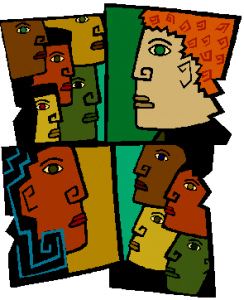 There is a constant thread running through the daily news feed: The need for honest, open, respectful dialogue to create true social change. Whether it is a single altercation with the law or a community demonstration, too many lives are being ended abruptly and unnecessarily because what could have been a normal conversation escalated into shouts and shots.
There is a constant thread running through the daily news feed: The need for honest, open, respectful dialogue to create true social change. Whether it is a single altercation with the law or a community demonstration, too many lives are being ended abruptly and unnecessarily because what could have been a normal conversation escalated into shouts and shots.
On October 17, something miraculous happened outside the Noor Islamic Cultural Center in Columbus, Ohio: Open dialogue.
A sole Christian protester (named Annie) came to the Cultural Center prepared to protest against the Islamic faith. Instead of provoking Annie, Antioch University religious scholar Micah David Naziri engaged in open dialogue. It began with a few simple questions and comments. The near 50-minute conversation, captured on videotape, was civil and peaceful. Although the two disagreed on principles and beliefs, they were able to remain engaged in a cooperative manner during the entire discussion. One Muslim, Cynthia DeBoutinkhar, approached Annie and gave her a hug. She posted her experience on Facebook. A small group of the Cultural Center’s membership walked Annie to the mosque to continue the conversation.
Social change begins with face-to-face dialogue that is respectful, non-judgmental and non-confrontational. Building on a one-on-one dialogue, we can also create a broader, open community engagement.
There is much to be learned about respectful communication and understanding. It begins with educating ourselves. While we speak up for what we believe in, we must also treat others with dignity and respect – even those whose opinions are opposite ours. We must first open up our own thinking before we can engage in open dialogue. Instead of setting aside differences, bring them into the dialogue for closer examination, understanding and resolution. Whether in your home, office or community, you possess the power to engage in a conversation that leads to greater understanding. To expand your thinking, consider these resources:
The Facebook page for Do One Thing for Diversity and Inclusion, a collaborative effort between UNESCO and the UN Alliance of Civilizations
The American Library Association’s Community Conversation Workbook, if you want to coordinate a community conversation
The Plum Village Conflict Resolution Guide, incorporating in its foundation both mindfulness and loving kindness
Beyond religious differences, we encounter many differences in our everyday life. Our behavior informs how we view and respond to those differences. These resources, above, provide unique perspectives on how we can see the world more holistically.
